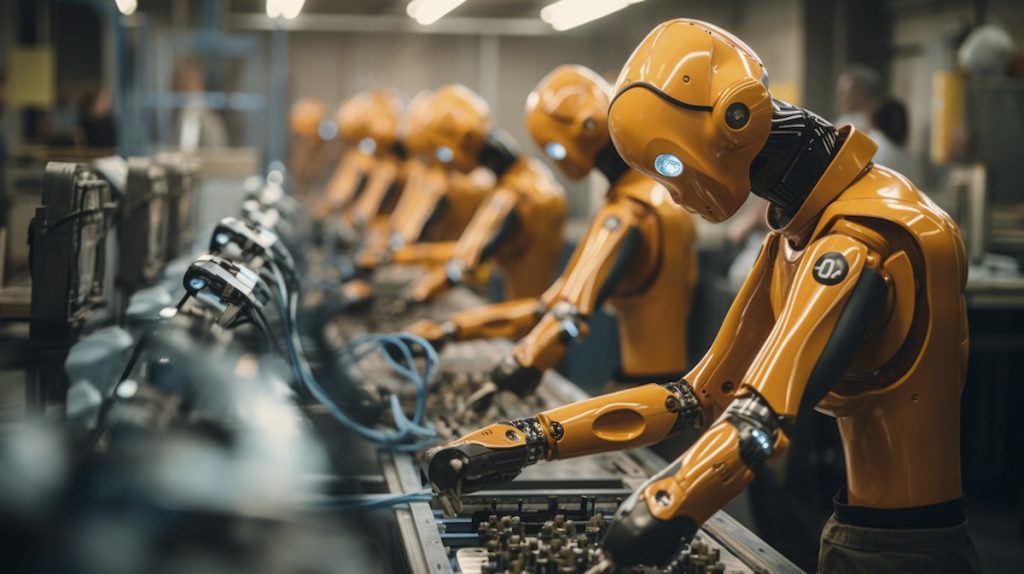From Data to Decision: The Role of AI and ML in Modern Manufacturing
Manufacturing is on the cusp of a technological revolution, driven by advancements in artificial intelligence (AI) and machine learning (ML). These technologies promise to transform how manufacturers operate, making processes more efficient, productive, and innovative. Let’s explore the main ideas and practical applications of AI and ML in manufacturing, as discussed by experts in the field during “The Insight Factory: Driving Decision-Making with AI and Machine Learning” session at IIoT World Manufacturing Days in May 2024.
Foundational Elements for Successful AI/ML Implementation
1. Establish a Strong Foundation:Before implementing AI/ML solutions, manufacturers must assess their current state, including their workforce, processes, and technology infrastructure. This includes evaluating the connectivity of equipment and ensuring the use of standardized systems like ERP.
2. Prioritize Data Quality and Management:Reliable data is crucial for successful AI/ML implementation. Manufacturers need robust data collection, management, and contextualization strategies, ensuring data quality and integration across the value chain.
3. Focus on a Specific Problem:Rather than trying to solve every problem with AI/ML, organizations should prioritize a specific bottleneck or area for improvement to pilot and scale solutions effectively.
GenAI as a Tool for Enhanced Explainability and Operator Support
Generative AI, a subset of AI focused on creating new content, has profound implications for manufacturing.
1. Explainable AI:GenAI can be leveraged to make AI/ML models more explainable by providing insights into the reasoning behind their recommendations, addressing a common barrier to adoption.
2. Improved Operator Support:Integrating GenAI with existing systems can enhance the operator experience by providing clear, actionable insights and recommendations, bridging the knowledge gap, and enabling better decision-making on the shop floor.
Real-world Examples of AI/ML Driving Value in Manufacturing, discussed during the session:
- Food Industry: A food manufacturer reduced evaporator startup time by 20% by optimizing settings using AI.
- Automotive Industry: An automotive parts supplier lowered factory energy usage by 15% through AI-driven heating control.
- Mining Industry: A mining company increased throughput by 10% in their grinding circuits by optimizing control settings with AI.
These examples showcase significant improvements in efficiency, cost savings, and overall productivity, highlighting the potential ROI of AI and ML investments.
Addressing Common Challenges and Ensuring Scalability
- Overcoming Inertia and Gaining Buy-In:Organizations need to adopt an action-oriented approach, clearly articulate the value of AI/ML, and secure buy-in from stakeholders to overcome inertia and drive implementation.
- Prioritizing Scalability from the Outset:To avoid pilot purgatory and maximize ROI, scalability should be a key consideration from the initial stages of AI/ML project planning.
The session concluded by highlighting the importance of a holistic approach that considers data, technology, processes, and people to unlock the full potential of AI and machine learning in manufacturing.
The integration of AI and ML in manufacturing is not just about adopting new technologies but about transforming the entire approach to production. From optimizing product design and manufacturing processes to enhancing predictive maintenance and quality control, AI and ML offer powerful tools to drive decision-making and operational excellence. By focusing on a strong foundational strategy, leveraging real-time data, and addressing the human element, manufacturers can unlock the full potential of these technologies and achieve remarkable improvements in efficiency and innovation.
For more insights, watch the on-demand session “The Insight Factory: Driving Decision-Making with AI and Machine Learning” that was part of the IIoT World Days online event in May.
This article was generated using ChatGPT based on the session’s video transcript. The content reflects the insights and discussions from industry experts as they explore the transformative applications of Generative AI in manufacturing. The transcript provided the foundational information, which was then structured and elaborated upon by ChatGPT to create a comprehensive and informative article for manufacturers. It was verified and edited by IIoT World’s team.
